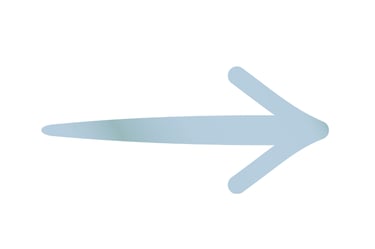Add your promotional text...
Midlife Magic: The Peaceful Power of Saying No
There comes a moment in midlife when peace matters more than approval. This post explores the empowering shift that happens when we begin to say “no” without guilt. Reclaiming time and energy in midlife isn’t selfish, it’s self-respect. Read on for tips and encouragement!
7/23/20255 min read
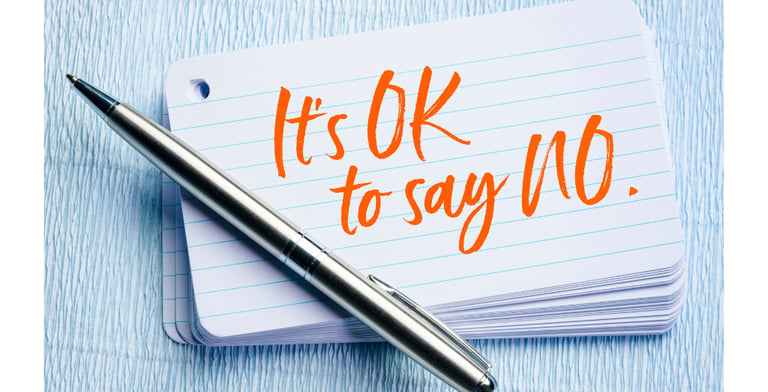

There’s something powerful, almost magical, that happens when you hit your 40s and 50s. The fog of “shoulds” begins to lift. The urge to please everyone starts to quiet. And if you listen closely, there’s a small, steady voice that begins to whisper a word many of us were taught to avoid:
NO.
Not harsh. Not angry. Not rebellious. Just clear, calm, and rooted in truth.
The "Yes Years" Are Over (and That's a Beautiful Thing!)
For decades, many of us wore yes like a badge of honor. YES! To the extra work. YES! To the bake sale. YES! To staying late, showing up, being the one who holds it all together. Saying no felt selfish. It felt like letting someone down. But the one person we kept letting down was ourselves.
In our 20s and 30s, many of us were building. Careers, families, identities. But now? We’re craving less noise and more clarity. Less performing and more peace. Saying no isn’t closing doors, it’s opening the right ones.
You don’t need a spreadsheet of excuses. You don’t need to soften the blow. You’re allowed to simply say:
“No, I won’t be able to take that on.”
“Thank you for thinking of me, but I need to pass.”
“I don’t have the capacity for that right now.”
That’s it. Full stop.
And yet, for many women, that feels impossible. Why?
Because we’ve been conditioned, from an early age, to believe that saying no makes us difficult, rude, or unkind. We’re taught to be agreeable, accommodating, and available. When we decline something, we instinctively reach for an explanation to soften the impact, to make the other person more comfortable. Even if it costs us our comfort.
Psychologists call this the “tend and befriend” response: a stress response more common in women, where we seek to preserve social harmony and relationships. Even at our own expense. So instead of saying no, we say:
“I’d love to, but I just have so much going on…”
“I wish I could, but maybe next time?”
“I’m sorry, I just don’t think I can make it work...”
We pile on apologies, reasons, and justifications, as if the simple truth of “I’m not available” or “I don’t want to” isn’t valid enough on its own.
But it is.
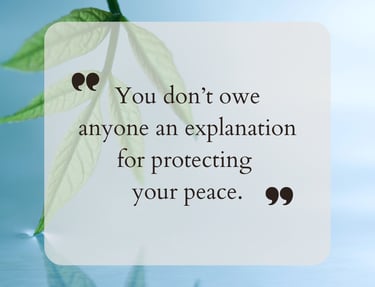

Saying no without a lengthy explanation is not rude. It’s honest.
It’s a boundary, not a rejection. A statement of self-trust, not selfishness.
And here's the thing: people who respect you won’t need a reason. And those who do need a reason may have been benefiting from your lack of boundaries for too long.
NO Is a Full Sentence
Saying NO is choosing yourself without guilt.
It’s the sentence you don’t have to explain.
And it’s more than enough.
Setting boundaries doesn’t mean you care less. It means you’re finally caring more. About your energy, your mental health, your priorities. In midlife, peace becomes non-negotiable. Drama, obligation, and resentment? Expensive tenants.
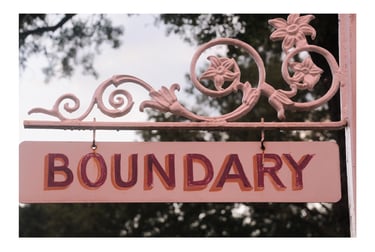

Boundaries say:
I love you, but I won’t sacrifice my wellbeing for your comfort.
I want to be helpful, but not at the expense of my own joy.
I’m still kind, even when I say no.
You are not here to live everyone else’s life for them. Your time, energy, and presence are precious. Start treating them that way.
Boundaries Aren’t Walls, They’re Windows to Peace
What Happens When You Start Saying No?
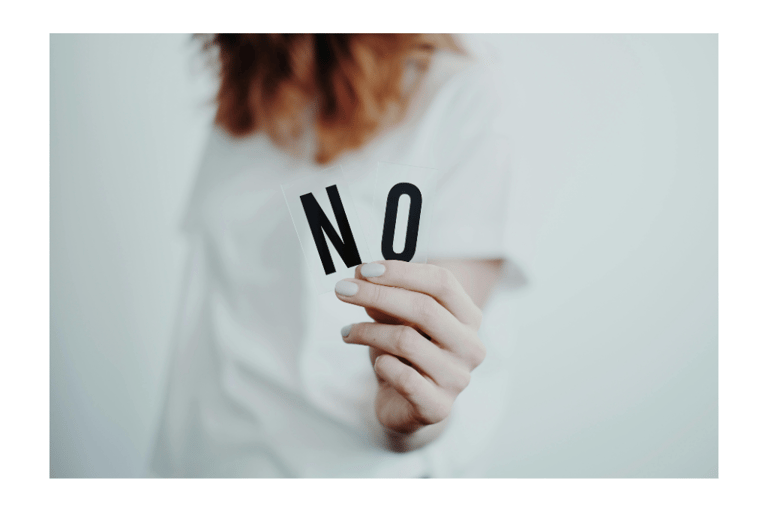

Something shifts. You reclaim your calendar. You get quiet enough to hear what you actually want. You make room for rest, creativity, long walks, books you never finished, people who lift you up.
You stop moving from a place of guilt and start making decisions from a place of intention. And you realize:
Saying no to what drains you is saying yes to what sustains you.
Learning to Say No:
A Permission Slip for Peace
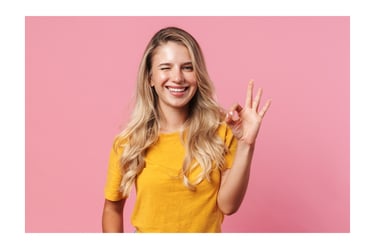

So go ahead. Just. Say. No. To the things that don’t align, don’t fit, don’t bring peace.
And say yes to yourself.
BUT... if you're someone who’s always said yes to others, out of habit, guilt, or fear of disappointing them, learning to say no can feel foreign, even scary. It’s okay to start small. Here are a few ways to ease into it:
If no one has said it lately, let me be the first:
You have nothing to prove.
You’ve done enough.
You are enough.
Start with Soft Boundaries
Try saying:
“Let me think about that and get back to you.”
“I’m not sure I have the bandwidth for that right now.”
These give you space to pause and check in with your own needs before defaulting to yes.
Practice a Script
If the moment catches you off guard, it helps to have a go-to
phrase. Try:
“Thank you for asking, but I’m not able to commit to that.”
“That doesn’t work for me right now, but I hope it goes well.”
“No, thank you.” (Simple. Powerful. Complete.)
Reframe the Discomfort
Saying no isn’t rejection, it’s redirection. You’re not pushing people away; you’re pulling your own needs closer. Try asking yourself:
“If I say yes to this, what am I saying no to in my own life?”
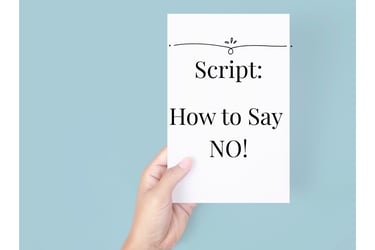

Before answering a request, pause and ask:
“Am I doing this out of joy?”
“Would I want someone I love to say yes in this situation?”
If the answer is no, you have your answer too.
Use a Self-Compassion Check-In


It may feel clumsy at first, like learning a new language. But over time, your “no” will become more confident, more loving, more you. And with every NO that honors your energy, your time, and your truth, you’ll feel something new blooming inside you: peace.
And that’s always worth protecting.
Final Thoughts
Want More Self-Care Inspiration?
Check out my blog post: Surviving Midlife With a Smile: My Top 5 Self-Care Musts
Consider a perimenopause symptom tracker to focus on your health and wellness. Find one linked in this blog: Is This Perimenopause or Just a Personality Shift? Track it and Find out!
Browse cozy product picks to help you protect your peace and feel good from the inside out: Click here to visit the Glow Up Essentials Page!
Because self-care isn’t selfish, it’s essential!
